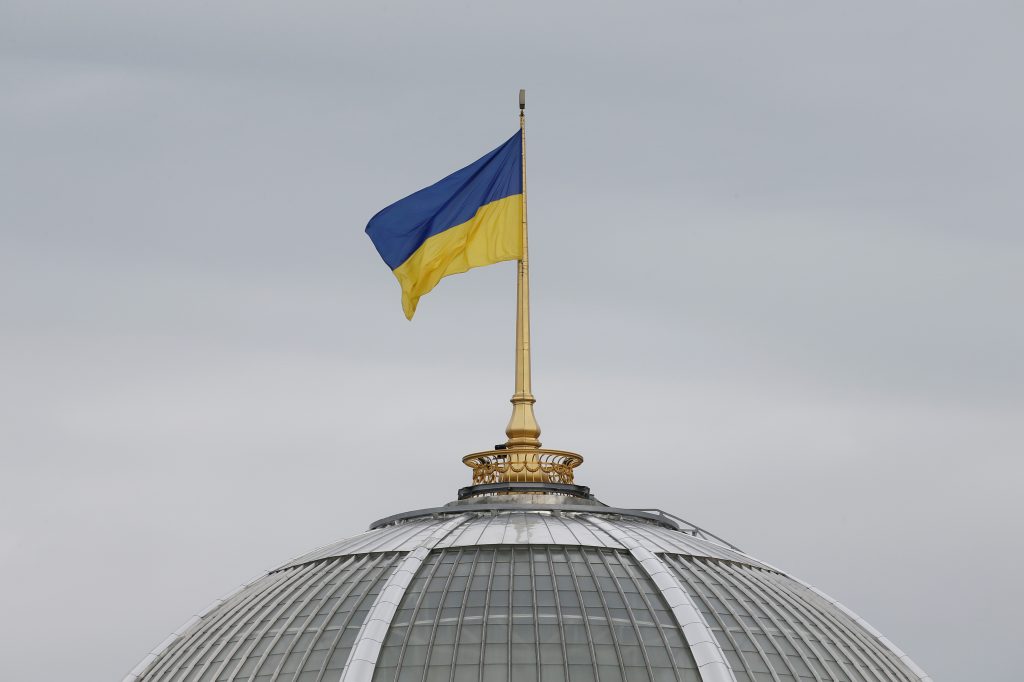Ukraine is the most important country in the ongoing confrontation between Russia and the West. This makes Ukraine’s domestic reform agenda a strategic priority for the entire Western world.
The recent Russian military buildup on the Ukrainian border sparked international alarm over the prospect of a major escalation in the simmering seven-year conflict between the two countries. While these fears are now receding, Russia has reinforced its long-standing red line that it will not allow NATO to draw closer. Meanwhile, it looks increasingly unlikely that the Kremlin-controlled “separatist republics” of eastern Ukraine will ever rejoin the rest of the country.
Under these circumstances, US policy is best invested in efforts to increase Ukraine’s resilience in the face continued Russian attempts to undermine the country’s sovereignty and territorial integrity. The Biden administration’s goals would be best served by the adoption of a “tough love” approach towards Ukraine designed to encourage reforms.
Stay updated
As the world watches the Russian invasion of Ukraine unfold, UkraineAlert delivers the best Atlantic Council expert insight and analysis on Ukraine twice a week directly to your inbox.
Despite some isolated examples of progress, today’s Ukraine has failed to make a radical break from the past and continues to struggle with many of the same corruption and mismanagement issues that helped fuel the 2013-14 Euromaidan Revolution. The US must make clear that continued billion-dollar support for Ukraine will be conditioned on tangible domestic reform progress.
The Biden administration currently has a chance to reinvigorate US policy towards Ukraine following the presidency of Donald Trump, who was accused of prioritizing his own reelection bid over support for principled reform. However, there is also a danger of repeating mistakes made during the Obama administration if US policymakers fail to fully appreciate the domestic resistance within Ukraine that hampers almost any effort to promote meaningful reforms.
Ukraine’s strong dependency on Western aid in the early stages of the war with Russia meant that the country’s elites had little choice but to comply with the conditions attached. Under US and EU pressure, Ukraine established a number of specialized agencies to combat high-level corruption. In order to meet IMF conditions, the Ukrainian authorities raised gas tariffs to eliminate the margin for oligarchic rent, and cleaned up the country’s notorious banking sector.
But reforms stalled after 2017 and failed to reach a decisive breakthrough. The political establishment and courts found creative ways to undermine the new anti-corruption agencies. Broader economic restructuring dragged out indefinitely, while gas sector reform was never fully consolidated.
President Volodomyr Zelenskyy was elected in 2019 in part thanks to his commitment to fight corruption. However, a number of negative developments under his tenure raise questions over his ability (and willingness) to put Ukraine on a positive track.
Eurasia Center events

The US should hinge its new Ukraine policy on the need to re-calibrate conditionality to discourage Ukrainian policymakers from circumventing their reform commitments.
US Secretary of State Antony Blinken struck the right note earlier this year by imposing sanctions on Ukrainian oligarch Igor Kolomoiskiy. This was a much-needed helping hand to the Ukrainian government as it seeks to withstand anti-reform pressure from powerful oligarchs and other vested interests.
At present, Ukraine remains in need of external finance to cover debt repayments and to get through a severe Covid-19 recession. The US and Ukraine’s other international partners must look to leverage this need for ongoing support in order to revitalize Ukraine’s reform efforts.
The IMF should make it clear that financing will be discontinued if Ukraine fails to meet its reform commitments. The IMF currently has Ukraine on pause and has held back USD 2.9 billion from the current agreement. This also freezes EUR 600 million in EU aid. The IMF should publicly state its unwillingness to disburse this money unless Ukraine demonstrates a convincing track record of convictions in high-level corruption cases.
Building public trust and the rule of law is impossible without an end to injustice or selective justice at the highest levels of state power. The US, the EU, and the IMF have already invested heavily in the establishment of a specialized anti-corruption infrastructure since 2014. Getting results should now be the main priority.
The IMF should further insist that Ukraine restart efforts to reform of the country’s corrupt judiciary (especially the Constitutional Court), and move forward with the privatization or corporate reform of Ukraine’s many inefficient state-owned companies.
As long as Ukraine refuses to deliver on these long-standing commitments, the government will be forced to go to the financial markets for loans with much higher interest rates. This does not mean that Ukraine will face immediate bankruptcy. But the need to balance the state budget could induce Ukrainian policymakers to withstand vested interests more than has been the case up to now.
Apart from monetary incentives, the next US ambassador to Ukraine should look to toughen US public diplomacy. A large and steady majority of Ukrainians wants to see the same reforms that Western institutions and governments are demanding. The experience under former US ambassador Marie Yovanovitch shows that a tough public stance makes it uncomfortable for Ukraine’s political elites to ignore reform demands.
An accountable and more resilient Ukraine would be a major success in the West’s intensifying geopolitical competition with Russia. In order to achieve this, the Biden administration must convince the EU (especially Poland and the Baltic States) as well as the United Kingdom and Canada about the need for a less naive policy.
Russia’s recent saber-rattling around Ukraine is a serious matter, but it must not give the Ukrainian political elite another excuse to avoid delivering on their long-standing reform commitments. Leverage requires consistent signals that international support can no longer be open-ended. Instead, it must be conditioned on socially and politically meaningful reforms that would strengthen Ukraine against continued Russian pressure.
Henrik Larsen, PhD, is a Senior Researcher at the Center for Security Studies at the Swiss Federal Institute of Technology Zurich. He served as a Political Adviser for the EU in Ukraine from 2014 to 2019. Tweets at @HenrikLindbo
Further reading
The views expressed in UkraineAlert are solely those of the authors and do not necessarily reflect the views of the Atlantic Council, its staff, or its supporters.

The Eurasia Center’s mission is to enhance transatlantic cooperation in promoting stability, democratic values and prosperity in Eurasia, from Eastern Europe and Turkey in the West to the Caucasus, Russia and Central Asia in the East.
Follow us on social media
and support our work
Image: A Ukrainian flag flies on the parliament building in Kyiv. (REUTERS/Valentyn Ogirenko)




